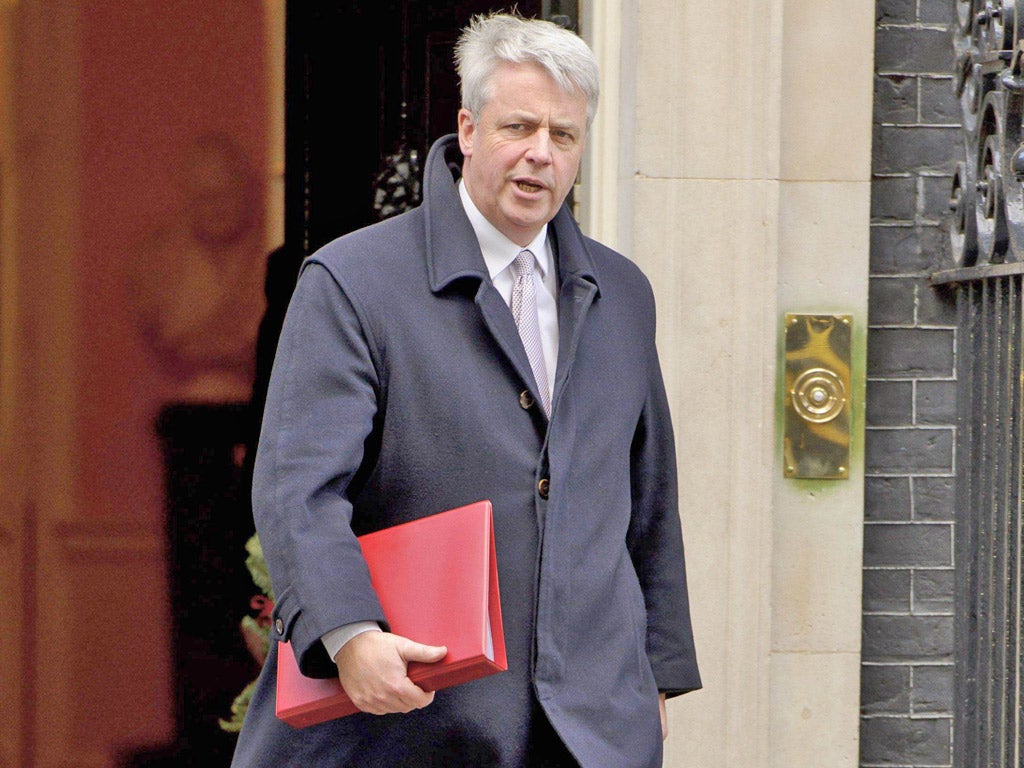Lansley tells BMA: stop spreading lies about my health reform Bill
Health Secretary attacks his critics – as opposition to plans among medical colleges begins to unravel

Your support helps us to tell the story
From reproductive rights to climate change to Big Tech, The Independent is on the ground when the story is developing. Whether it's investigating the financials of Elon Musk's pro-Trump PAC or producing our latest documentary, 'The A Word', which shines a light on the American women fighting for reproductive rights, we know how important it is to parse out the facts from the messaging.
At such a critical moment in US history, we need reporters on the ground. Your donation allows us to keep sending journalists to speak to both sides of the story.
The Independent is trusted by Americans across the entire political spectrum. And unlike many other quality news outlets, we choose not to lock Americans out of our reporting and analysis with paywalls. We believe quality journalism should be available to everyone, paid for by those who can afford it.
Your support makes all the difference.Andrew Lansley upped the stakes in his increasingly acrimonious dispute with the medical profession over the Health and Social Care Bill yesterday, accusing the British Medical Association (BMA) of having opposed "every important reform" back to the founding of the NHS more than 60 years ago.
As support for the BMA's campaign against the Bill appeared to be crumbling among the royal medical colleges last night, the Health Secretary accused his critics of spreading "lies" about the reforms and suggested that change in the NHS had always been opposed because it was "hard".
"Look back to 1948 when the British Medical Association denounced Aneurin Bevan as 'a would-be Führer' for wanting them to join a National Health Service. And Bevan himself described the BMA as 'politically poisoned people'. A survey at the time showed only 10 per cent of doctors backed the plans ... but where would we be today if my predecessors had caved in," Mr Lansley said in a speech in Liverpool.
His remarks came ahead of last night's summit meeting of the Academy of Royal Medical Colleges, its second in 48 hours, requested by the BMA in an attempt to bolster support for its opposition to the Bill. But the meeting was boycotted by the Royal College of Surgeons and the Royal College of Obstetricians and Gynaecologists, which said they would not be joining the BMA in calling for the Bill to be scrapped.
Both colleges said they had "serious concerns" about the Bill but were prepared to work with the Government to resolve them. A spokesman for the Royal College of Surgeons said: "It has become too political.
"There is a polarisation of approaches to the situation – it has reached the point where the Academy is not going to be able to hold it together."
College presidents have been subject to intense lobbying by ministers following their first meeting on Tuesday at which widespread concern about the impact of the reforms was expressed. A leaked draft statement prepared following that meeting said the academy and the royal medical colleges were "not able to support the Bill as it currently stands".
But the statement was hurriedly discarded after several college presidents declined to sign it.
A source at the meeting said: "Ministers have been busy ringing college presidents – a lot of conversations have been had in the last 24 hours. It was felt that while those conversations were continuing it was not appropriate to say anything. These are shifting sands."
While it was "perfectly legitimate" for the BMA, as a trade union, to ask its members to withdraw co-operation over the Bill, it was not appropriate for the colleges to do so, which were professional organisations concerned with quality and standards, not terms and conditions of service, the source said.
Anxiety about the Bill extends across the medical and political spectrum and is focused on the impact of increased competition, privatisation and the ability of the NHS to make £20bn efficiency savings by 2014.
The Health Select Committee warned on Tuesday that the reforms were a "distraction" and the NHS Confederation, representing NHS trusts, said the NHS was "sleepwalking into serious difficulties." The BMA, RCN and RCM initially signalled their intention to work with ministers on the Bill, but last week switched to outright opposition.
Timeline: Health and Social Care Bill
12 July 2010
White Paper proposing reform of the NHS published
19 January 2011
Bill unveiled by Andrew Lansley, right
12 March 2011
Lib-Dem revolt led by Shirley Williams
6 April 2011
David Cameron announces Bill "paused". Launches listening exercise
13 June 2011
Future Forum calls for changes to bill – accepted by Government
5 July 2011
Heart czar, Roger Boyle, quits over Health Bill
13 October 2011
Lords approve amended Health Bill
12 January 2012
Survey of RCGP, led by Clare Gerada, shows 98 per cent of GPs oppose Bill
19 January 2012
RCN led by Peter Carter, joins BMA and RCM in calling for Bill to be scrapped
24 January 2012
Former Tory Health Secretary Stephen Dorrell, chair of Health Select Committee, warns NHS is being "salami sliced" and Bill is a "distraction"
Join our commenting forum
Join thought-provoking conversations, follow other Independent readers and see their replies
Comments